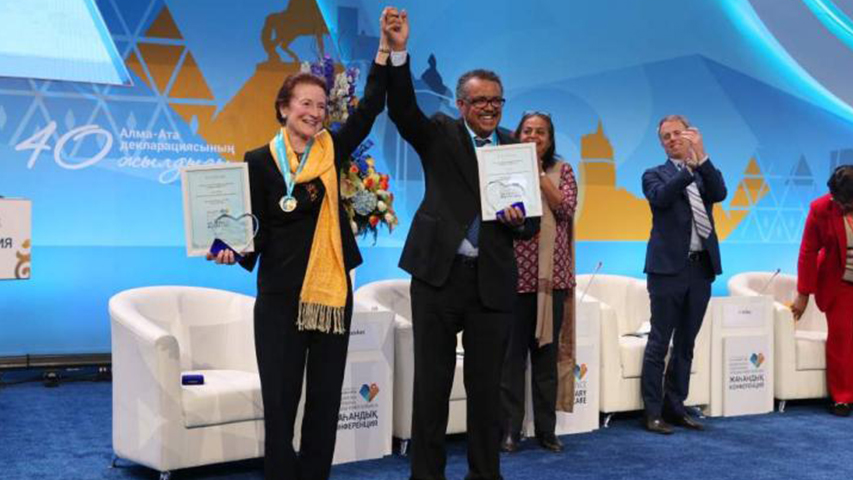
Astana Declaration commits to achieve Universal Health Coverage
by Shruthi Venkatesh October 31 2018, 5:11 pm Estimated Reading Time: 2 mins, 39 secsThe United Nations Member States have promised to strengthen primary health care as an ‘essential’ step towards achieving universal health coverage for all. The commitment came at the Global Conference on Primary Health Care, being held in the capital of Kazakhstan this week. Known as the Declaration of Astana, it reaffirms the historic 1978 Declaration of Alma-Ata, where the first accord was reached by world leaders on primary health care, United Nations news reported.
This declaration is also intended to help the world achieve Sustainable Development Goal 3: “Ensure healthy lives and promote well-being for all at all ages.” Far back in 1978, these declarations seemed to have many ups and downs and for the past four decades, projects have been uneven. Today, half the world’s population lacks access to essential health services – including care for non-communicable and communicable diseases, maternal and child health, mental health, and sexual and reproductive health. While the health system has made great strides in health outcomes globally over the past 40 years, people face many ongoing challenges. A primary health care (PHC) approach is the most effective way to sustainably solve today’s health and health system challenges.

Henrietta H. Fore, UNICEF Executive Dir ... of Astana (UNICEF Kazakhstan 2018)
The new declaration by the United Nations has been made as a global movement which would grow for greater investment in primary health care to achieve universal health coverage. So far, health resources have been overwhelmingly focused on single disease interventions rather than strong, comprehensive health systems. In short, there is a gap highlighted by several health emergencies in recent years. The new declaration will renew political commitment to primary health care from Governments, non-governmental organizations, professional organizations, academia and global health and development organizations. It will be used to inform the UN General Assembly high-level meeting on UHC in 2019. The Declaration of Astana makes pledges in four key areas:
- Make bold political choices for health across all sectors;
- Build sustainable primary health care;
- Empower individuals and communities; and
- Align stakeholder support to national policies, strategies and plans.
The new declaration is also a chance to commemorate the 1978 Alma-Ata Declaration on Primary Health Care, and reflect on how far we have come and the work that still lies ahead.
Dr. Tedros Adhanom Ghebreyesus, Director General of the World Health Organisation says “Today, instead of health for all, we have health for some.” He also adds that we all have a solemn responsibility to ensure that today’s declaration on primary health care enables every person, everywhere to exercise their fundamental right to health.
The World Health Organization (WHO), UN Children’s’ Fund (UNICEF) and the Government of Kazakhstan are co-hosting the Global Conference on Primary Health Care, described as “pivotal” by the WHO, with participants including government ministers from around the world, health workers, activists and leaders from civil society and the private sector.
In a joint statement, UNICEF and WHO promised to help governments and civil society to act on the Declaration of Astana and support the implementation of the pledges made in the Declaration.




-173X130.jpg)
-173X130.jpg)
-173X130.jpg)
-173X130.jpg)
-173X130.jpg)
-173X130.jpg)
-173X130.jpg)
-173X130.jpg)